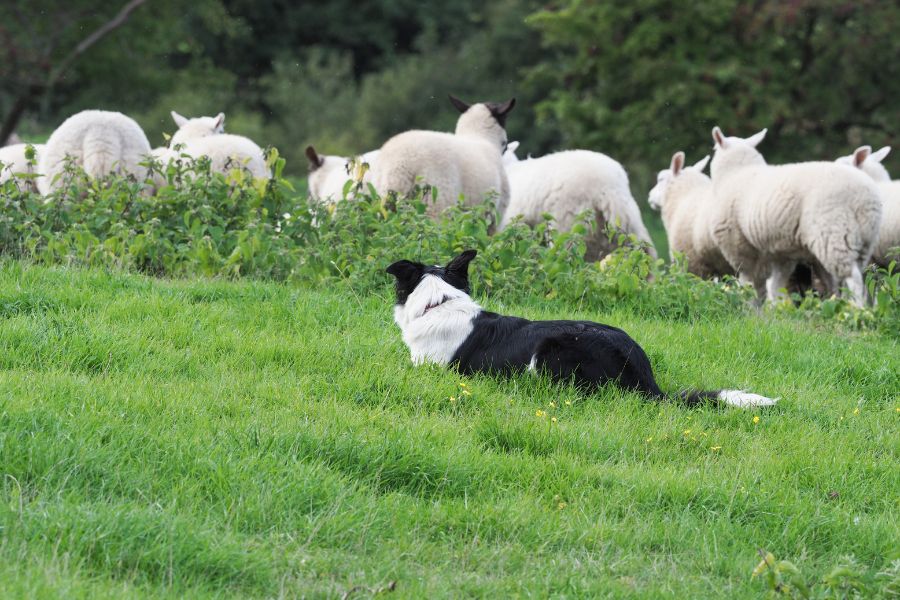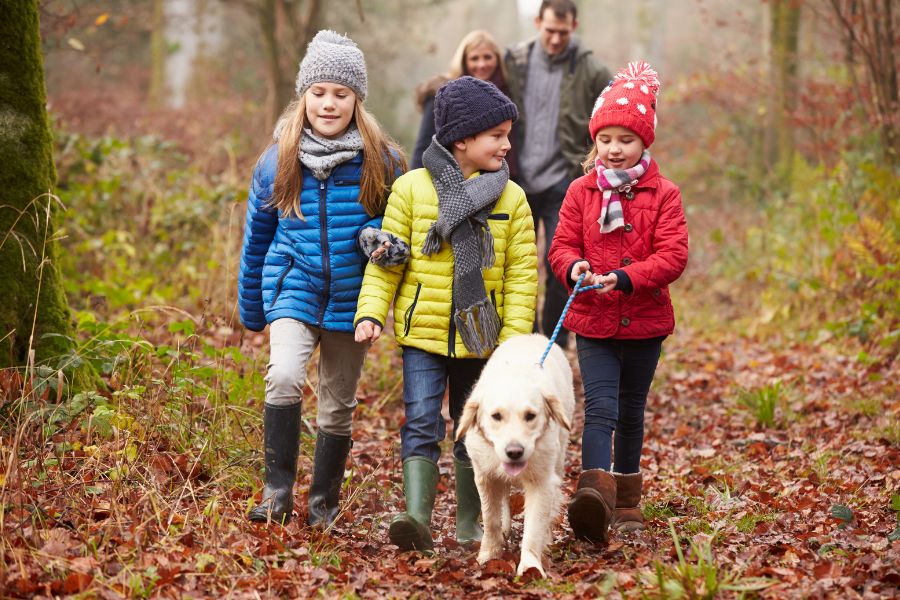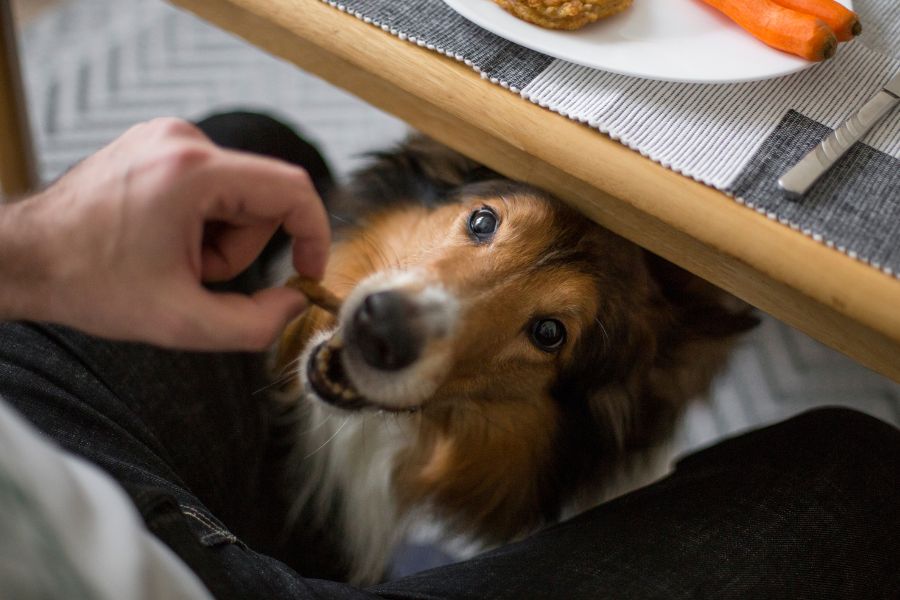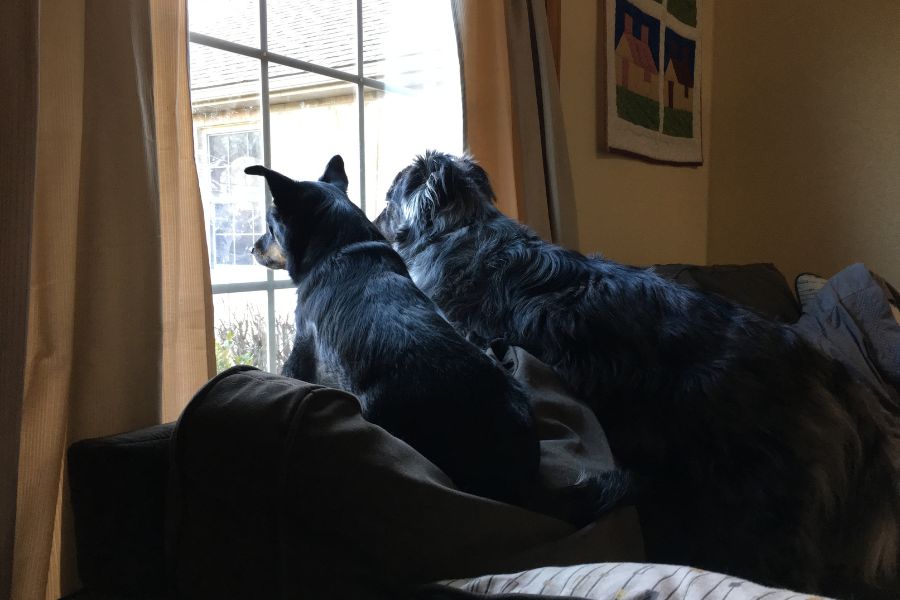Setting Expectations for Canine Behaviour
It’s easy to forget that our beloved pets need structure and boundaries just as much as we do. Without guidance, a dog can quickly become the master of their own domain; dictating when it needs attention, where it goes for walks and how it interacts with other animals. Unfortunately, this lack of control can lead to dangerous situations for both the pet and its owners.
In order to ensure our dogs are well-behaved in public, we must take steps to provide them with clear leadership, rules and structure – teaching them valuable lessons early on in life so they know what behaviour is expected of them in different situations. In this blog post, we will take a look at the significance of education for our canine companions and ask ourselves: does my dog know it’s a dog?
Written by LWDG Group Expert Samantha Thorneycroft-Taylor
Dogs are intelligent beings, there’s no denying that; they can be trained to perform a multitude of different skills, and fulfil multiple roles. They are capable of learning several words and the behaviour associated with them and those in working roles can, with appropriate training, then be trusted to use their own head in order to problem solve and complete difficult tasks.
But the reality is, it’s relatively easy to make a dog happy; in all truth, they don’t need much… food, water, shelter and companionship are a dog’s very basic needs. Appropriate exercise, education, and mental stimulation are an additional bonus, a ‘bonus’ that we should all strive to achieve as dogs’ owners for it helps to form and maintain a stable relationship – one built on trust and mutual understanding.
A Dogs Primary Role
The days of a dog’s primary role being one of a protector, or to round up a farmer’s flock/herd or detaining a criminal have all but been forgotten. The number of dogs in a working role now pales into insignificance against the number of dogs whose sole ‘duty’ is as a family pet.

More and more, dogs are being treated as totally equal family members and sometimes are even the matriarch of the family; a dog who demands when it goes for a walk or when it gets fed by barking incessantly at its owners. A dog who takes ownership of the sofa and won’t let anyone else sit on it, or one who steals dad’s slipper and refuses to give it up, sometimes showing aggression in order to achieve its goal. A dog who shouts at every passer-by of the front window or is constantly pestering your guests. I’d bet money that many of these dogs lack boundaries and self-control, they’ve either not been taught or have pushed back against the ‘house’ rules and, for whatever reason, have now taken ownership of the family rather than the family taking ownership of the dog.
The Rise In Dog Ownership
In recent years the number of dog-owning families has risen dramatically. During the coronavirus pandemic, rescue centres found themselves virtually emptied and the price of a puppy quadrupled. Everyone had a valid desire to own a dog – for camaraderie in times of social isolation, an excuse to go outdoors and explore, as well as the opportunity to finally be at home long enough daily so that they could provide a loving home.

In theory, dogs bought in lockdown should have been some of the best-trained dogs out there; with all the time spent at home, there should have been multiple opportunities to spend training every day. There should have been multiple opportunities to teach our dogs how to act appropriately in the home, when out, around other dogs, people and various distractions. But did we do it? It’s hard to see evidence of this.
Sadly, with this increase in dog-owning families, has been an increase in behavioural problems, an increase in cases of aggression, and seemingly a distinct decrease in owners fulfilling their obligation to educate their dogs right from wrong to ensure the safety of their families, their dogs, and the general public.
The Rise In Dogs Needing Rehoming
Unfortunately, hundreds of these dogs are finding themselves in our rescue centres, many of which have been at full capacity for months now and a dog with ‘issues’ is far harder to rehome than a well-educated one – they take longer to rehabilitate which in turn costs the rescue centre more money, limits the number of dogs that a centre can help and dogs who have shown aggression in their previous life are frequently perceived as too high a risk to rehabilitate and rehome so find themselves with very few options.

The pandemic is getting the blame for many dogs not experiencing proper socialisation. No, we couldn’t all meet up in the local fields and allow our dogs to play for hours on end but this is not what socialisation means anyway; socialisation for a dog should be teaching a dog how to act appropriately in all manner of different situations and environments.
We are failing our dogs, and we are endangering their futures. We need to turn this around. The number of recorded dog attacks, ending in either injury, hospitalisation, or death is rising at a staggering rate – and that’s only the ones we know about, there will be many more attacks and injuries that aren’t recorded and we never hear of.
Exploring the Humanisation of Dogs
It appears that there is no longer the mindset that Fido is a dog. Instead, he gets a cute haircut, a trendy jumper, a choice of gourmet foods and the responsibility of ruling the roost; waking the house up at some ungodly hour because he wants a walk now, or refuses to let the family eat their meals in peace.

The trouble is that a dog who dictates what happens when and who decides what is and isn’t acceptable, within a home will likely believe they can do the same when out and about; bounding across the park to interrupt a couple’s romantic picnic, rushing up to an unknown dog to ‘see him off’ or even to instigate play, chasing a horse and rider across a beach and biting at the horses tail. Since when did our dogs decide all of these things?
Since when did we allow our dogs to rule our lives?
Self Control And Boundaries
A dog that lacks self-control and boundaries is a poorly educated one, a dog that hasn’t learnt that poor choices lead to consequences is a poorly educated one. If a dog ignores a recall and chases the local deer population for 40 minutes before returning to the owner and is given a tasty treat upon its return, at what point is it expected to learn that chasing the deer is unacceptable?
If a dog growls at another dog across the road and then has food shoved under its nose to distract it, at what point is it expected to learn that growling at the other dog is unacceptable? A dog that has never been taught there are consequences to its actions is far more likely to make poor decisions, and let me be clear here; I’m not talking about harsh or abusive punishments (consequences) that were used in years gone by.
We all know that a behaviour that is positively rewarded is more likely to be repeated, both in dogs and humans, and it would be wonderful if we could go through life without ever having to encounter a negative experience.
But the reality is that this is an impossible way to live life, there are consequences everywhere – if you lose your keys you’ll likely be locked out of your house, if you drive above the speed limit you’ll likely get a fine, if you’re late for work you’ll likely get pulled up on it, if you step in front of a moving vehicle you’ll likely get hurt… Some of these consequences are controlled ones and some of them are ‘natural’ (they happen without additional intervention), but they are still consequences and a part of learning and living.
A dog needs the same education; they need to learn that there are consequences to poorly made choices just as much as they need to learn there are rewards for well-made choices. A dog that has clear guidance from its owner, clear leadership, rules, boundaries and structure is a happy dog.

Final Thoughts…
It is our responsibility as pet owners to ensure that we are providing the best possible socialisation and education for our dogs. We must take steps to ensure they understand there are consequences for their actions, both positive and negative so that they can live happy lives without endangering themselves or those around them.
By teaching these valuable lessons early on in life, we can help create better-behaved pets who know what behaviour is expected of them in different situations. With a little patience and understanding from us, our beloved pets will be able to make wise decisions when out in public – leading happier lives overall!

Further Learning
What ‘Dont Worry My Dog Is Friendly’ really means; Out of-control dogs in public places
Join Our Online Community!
Jump on our email list for free tips and insights delivered to your inbox monthly. No spam - just quick bites of value.

